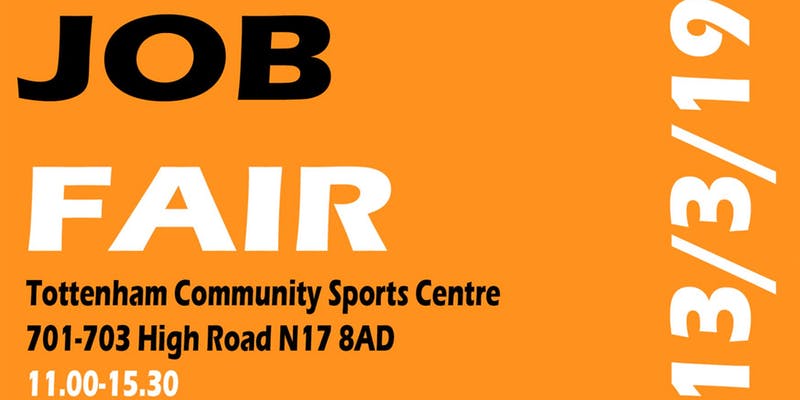
by Admin | 17.06.2019

UEFA EURO 2020:
Next summer, London will be one of 12 cities hosting the UEFA European Championship – EURO 2020. London will host seven games at Wembley Stadium, including the semi-finals and final.
The tournament runs from 12 June to 12 July 2020, with the first game in London being held on 14 June.
Become a EURO 2020 London Squad volunteer
As a London Squad volunteer you’ll be fully immersed in EURO 2020 – at tourist hotspots, transport hubs and fan zones. You’ll gain and test your knowledge of London as you practise your customer service and communication skills, all while meeting new people from across the city.
You don’t need any previous volunteering experience – just enthusiasm and self-motivation, along with good communication skills.
Become a London Squad Volunteer
Volunteering
Volunteering is a great way for anyone including carers to meet new people and learn new skills. Some carers volunteer when their caring role has ended and they are looking for a new challenge. Other carers volunteer alongside their caring role to help them keep their skills up to date or simply because they feel passionate about the volunteering they do.
Volunteering and helping others can reduce stress, combat depression, keep you mentally stimulated, and provide a sense of purpose. While it’s true that the more you volunteer, the more benefits you’ll experience, volunteering doesn’t have to involve a long-term commitment or take a huge amount of time out of your busy day.
Volunteers get a lot out of the experience and can volunteering can help with the following:
– Improve your CV
– Get back into work
– Improve your confidence
– Improve your health
– Meet new people
For volunteering opportunities – contact your local carers centre
Barnet Carers
Brent Carers
Ealing – Carers Trust Thames
Enfield Carers
H&F – Carers Network
Haringey – Haringey Volunteer Centre
Harrow Carers
Hillingdon Carers
Hounslow – Volunteering Hounslow
Do-it – is a database of UK volunteering opportunities. You can search more than a million volunteering opportunities by interest, activity or location and then apply online

by Admin | 06.05.2019
Looking after your health and wellbeing is a priority for us, here at Working for Carers. We strongly believe that looking after the health and wellbeing of carers is vital to ensure that you, as a carer, are happy, healthy and emotionally and mentally secure.
We have several health and wellbeing support services across the boroughs we work with and we encourage you to take advantage of these services. All our staff our trained and will work closely with you, whatever your need.
Gardens and health
The link between gardens, gardening and being outdoors with health and wellbeing has long been understood. And extensive research, including some undertaken by Carers Trust, has now shown that spending time outdoors can significantly improve mental health and wellbeing. Carers Trust is therefore keen to use this learning in their work with carers by encouraging them to find time to spend outdoors.
Carers Trust’s Partnership with the National Garden Scheme
The National Garden Scheme is Carers Trust’s longest standing corporate donor and to date we have received over £3m from them to help support unpaid carers. It raises large sums of money every year for caring and nursing charities, of which Carers Trust is one of the largest beneficiaries.
The money Carers Trust has received from the National Garden Scheme has helped us to support the UK’s seven million unpaid carers. This includes increasing their reach and ability to offer advice, information, respite care, and financial support to carers in their local communities as well as through their policy and campaigning work.
Why not visit one of the hundreds of beautiful gardens opened each year by the National Garden Scheme? Money raised from entry fees is shared out by the National Garden Scheme with its partner charities, including Carers Trust. So your visit will help our work to support unpaid carers across the UK.
To find an open garden near you, search by location and date on the National Garden Scheme’s website.

Getting creative really does boost your mood, survey suggests
Pottery, painting or piano-playing – whatever gets your creative juices flowing will boost your mood, according to new research. Almost 50,000 people took part in the BBC Arts Great British Creativity Test.It suggested that being creative can help avoid stress, free up mind space and improve self-development, which helps build self-esteem.The findings also said there are emotional benefits from taking part in even a single session of creativity.
But there are cumulative benefits from regular engagement in arts activities and trying new pursuits is particularly good for our emotions and wellbeing, it suggests.
The results were revealed on Wednesday as part of the Get Creative Festival – the UK-wide celebration of creativity that runs from 11-19 May.
The survey found that, of the sample:
- 76% of participants used creative activities as a “distraction tool” to block out stress and anxiety
- 69% used them as a “self-development tool” to build up self-esteem and inner strength
- 53% used them as a “contemplation tool” to get the headspace to reflect on problems and emotions
The survey also revealed that the most benefit comes from taking part in live creative activities that involve face-to-face social interaction, like singing in a choir or taking part in a group painting class.
Virtual creative experiences also have some benefits, but there is not as much gain. The research project was led by Dr Daisy Fancourt, a senior research fellow at UCL.
For more information click here to BBC News website

Live Well
Advice, tips and tools to help you make the best choices about your health and wellbeing
Please click Live Well for help with your diet, stopping smoking, getting enough exercise and coping with stress.

Action for Happiness helps people take action for a happier and more caring world.
We all want to live happy and fulfilling lives and we want the people we love to be happy too. So happiness matters to all of us.
Happiness is about our lives as a whole: it includes the fluctuating feelings we experience everyday but also our overall satisfaction with life. It is influenced by our genes, upbringing and our external circumstances – such as our health, our work and our financial situation. But crucially it is also heavily influenced by our choices – our inner attitudes, how we approach our relationships, our personal values and our sense of purpose. Click here for Action for Happiness monthly calendars.

Health & Wellbeing
Date Revised: 29/10/18
Find support to keep you, and the person you care for, healthy.
Also see Live Well on NHS Choices for help with your diet, stopping smoking, getting enough exercise, and coping with stress.

The winter edition of our Body & Mind magazine is here
12 December 2018
The winter edition of our Body & Mind magazine is out now. Our last edition for 2018 is filled with loads of fantastic stories from across our Trust.
In this edition:
● ‘Someone helped me and I want to help someone else’– Meet the award winning Harrow Infant Feeding Team
● ‘CAMHS was the best thing that happened to me’
● 70 years of the NHS
● ‘I knew I could call no matter what’ – Your Lifeline Service launched
Click link to view – Body & Mind Magazine

Carefreebreaks provides short breaks for unpaid carers in hotels and holiday cottages provided free-of-charge by owners during the low season.
Working in partnership with carer support organisations and accommodation providers, we match the demand for breaks with a supply of holiday cottages and hotel rooms donated by owners.Having been referred by a carer support worker, eligible carers are invited to register with Carefreebreaks and specify their preferences for a 3 or 7-night break.After choosing from a selection of properties, the carer is then linked directly to the accommodation provider to finalise the details.A rating and review system encourages accommodation providers to maintain high standards and carers to treat the gift they have been given with respect. After a carer has taken a break, we gather feedback for impact evaluation.
If you are interested in this please contact your local Carers Centre to be referred to this organisation.
More details can be found at https://www.carefreebreaks.com/public

Looking after someone – information and support for carers
‘Looking after someone’ is our guide for anyone caring for family or friends. The guide outlines your rights as a carer and gives an overview of the practical and financial support available.
Click here
The Carers UK Looking after someone guide is divided into the following sections: getting help and support, your finances and your work.

Health and Wellbeing in your borough
Barnet – Barnet Wellbeing Hub – The Hub is a new service providing a flexible, holistic, person-centred approach focusing on your individual needs and wellbeing. The Hub is the single referral pathway for you to access services and activities in the community to improve your wellbeing.
Brent – Brent Your Community Page
Ealing – One You Ealing offer free one-to-one lifestyle support and advice to people who live in the London Borough of Ealing.
Click One You Ealing or further information
Enfield: Healthy Enfield
Hammersmith & Fulham – One You in Hammersmith & Fulham The Council provide a number of services to help you manage your health and to lead a healthy lifestyle
Harrow – Get Active Harrow Council has partnered with the Pro Active London partnerships to develop an online one stop shop of all the sport and physical activity. This includes: clubs, venues and sporting activities across London. The site is backed by the Mayor of London as part of the 2012 Sport Legacy Plan. The aim is to get more Londoners active, help increase membership of the clubs and assist with making their activities and events a success.
Hillingdon – Hillingdon Leisure – for details on leisure and events
Hounslow – One You Hounslow offer free one-to-one lifestyle support and advice to people who live in the London Borough of Hounslow.

Making better choices today can have a big impact on your health. One You is here to help you get healthier and feel better with free tips, tools and support. Whether it’s moving more, eating more healthily or checking yourself — One You can help you make small, practical changes that fit in with your life.
Click One You to find out more
Caring can be a hugely rewarding experience, enriching relationships and bringing satisfaction and wellbeing. However, caring for others often comes at a cost to carers’ own health and well-being as they put their own health needs to the back of the queue.
To be Healthy and Connected, carers need the information and practical support to care safely without harming their own physical and mental health and the right advice and financial support to be able to stay fit and eat healthily. Carers need access to breaks, from a few hours to a couple of weeks, to recharge the batteries and maintain a life of their own alongside caring.
Other Useful links:
Carers Trust, Website: www.carers.org, Telephone: 0844 800 4361,
Carers UK, Website: www.carersuk.org Telephone 0808 808 7777
NHS Choices, Website: www.nhs.uk
Revitalise, Website: www.revitalise.org.uk, Telephone: 0303 303 0145,
Turn2us, Website: www.turn2us.org.uk
Also check your local council websites or visit them for advice on Health & Wellbeing or talk to your Working for Carers Employment for further advice.

by Admin | 06.04.2019
Benefit updates from April 2019

Becoming a nursing associate – How to become a nursing associate and find a course in England
A nursing associate is a new member of the nursing team who will provide care and support for patients and service users.The nursing associate role will be regulated in England only. We became the legal regulator for nursing associates in July 2018.
Nursing associate programmes
Until 26 July 2019, you can begin training as a nursing associate in England via a: nursing associate programme delivered by a Health Education England (HEE) approved nursing associate pilot site, or nursing associate apprenticeship programme. After 26 July 2019, you can only begin training on a NMC-approved nursing associate programme.
Where to find training programmes
If you’re interested in becoming a nursing associate and you’re currently employed as a health or care professional, you can ask your employer for advice on the options available to you. We’ll be updating our list of approved programmes from June 2019 to include nursing associate programmes as we approve them.
Progression to nursing qualifications
The government wants to see nursing associate qualifications help people with the desire and ability to become a registered nurse.
We’ve designed our standards in a way that makes it easy for education providers to develop programmes that will build on nursing associate proficiencies.
These programmes will need to enable students to develop a specialty in a field of nursing. For more information on becoming a Nurse or Midwife please click Nursing & Midwifery Council

Level 1 Certificate in Customer Service and Communication – Want to work in Customer Service?
Learn how to provide great customer service, improve your communication skills, and understand the principles of good customer care.
This 6 day course looks at responding to the needs of your customers and colleagues, communicating effectively, rights and responsibilities, dealing with problems, using the phone to communicate, and other topics. The course is useful for anyone wanting to work in customer service in any field. You will gain your qualification through a series of exercises and filling in of a workbook.
These courses are FREE for anyone on means tested benefit or for anyone who earns less than £330/month or £15,000 year.
Click here for further information.
Please call us on 020 8868 5224 for any further information and ask for a member of the Working for Carers team. We’ll be happy to answer any questions you may have.
Working for Carers will be present at the following events. Please do join us.

Heathrow Jobs & Careers Fair – Thursday 28th February 2019
The Heathrow Jobs & Careers Fair will take place on Thursday 28 February 2019 at Sofitel Heathrow, Terminal 5.
Heathrow Jobs and Careers Fair is an annual event. It aims to inspire local schools, parents and job seekers as part of the airport’s investment in the local communities of Ealing, Hillingdon, Hounslow, Slough, South Buckinghamshire, Spelthorne and Windsor & Maidenhead.
The event showcases some of the 413 companies that operate at Heathrow and the thousands of different skills development opportunities and roles available.
For more information and to register click here
Job Fair – 13th March 2019, Haringey
Crutch Harinegy is hosting its next Job Fair oppposite the new Tottenham Hotspur football stadium. There will be over 50 exhibitor stands including job opportunities, apprenticeships, training and career guidance and support.
Last year over 400 visitors attended.
This is a free non ticket event open to all – please click here for more information and to register

Level 2 Advice and Guidance (IAG) Qualification
Want to work giving advice and guidance to people?
This 5 day course is suitable for anyone who wishes to start a career in advice work (or who already volunteers or works in this field), and will provide a basic level qualification to those wishing to give advice and discuss options for customers and clients in careers, housing, employment, rights, debt, counselling and training/education.
The course covers definitions of advice and guidance, the skills needed to give advice, listening and communication skills, meeting the needs of the client, boundaries, referral, and legal/ethical issues. You will get to practice your skills through exercises and role plays, and will achieve the qualification through a series of small assignments.
Click here for further information.
Please call us on 020 8868 5224 for any further information and ask for a member of the Working for Carers team. We’ll be happy to answer any questions you may have.

















